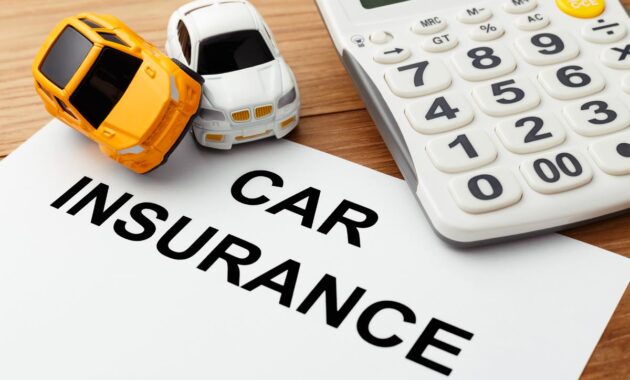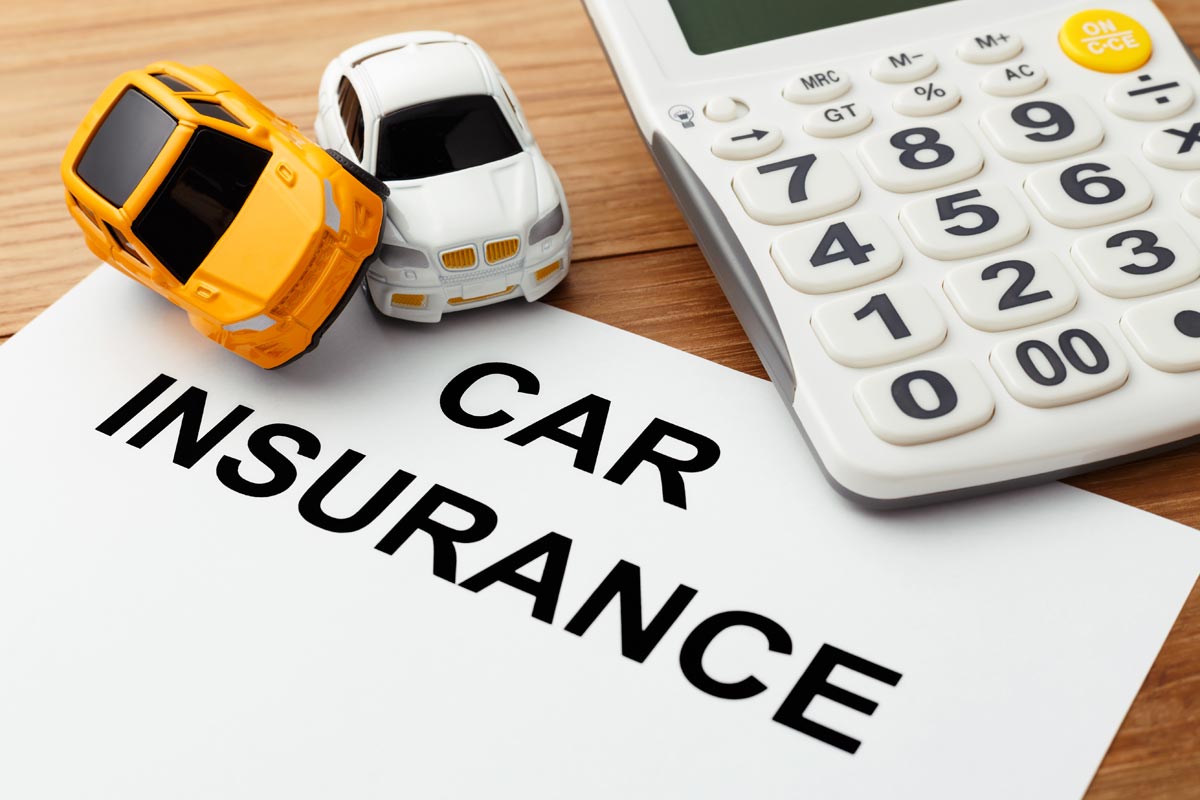
Car auto insurance is an essential part of responsible car ownership, providing financial protection in case of accidents, theft, or other unforeseen events. Understanding the different types of coverage, choosing the right policy, and knowing how to file a claim are crucial aspects of navigating the world of car insurance.
This comprehensive guide will delve into the intricacies of car insurance, from the fundamental concepts to the latest technological advancements that are shaping the industry. We’ll explore the factors that influence premiums, offer tips for finding the best coverage, and provide insights into navigating the claims process. Whether you’re a new driver, a seasoned motorist, or simply seeking to optimize your car insurance strategy, this guide will equip you with the knowledge and tools to make informed decisions.
Understanding Car Insurance

Car insurance is a crucial aspect of responsible vehicle ownership, providing financial protection in the event of an accident or other unforeseen circumstances. It acts as a safety net, safeguarding you and your finances from potential losses.
Types of Car Insurance Coverage
Car insurance policies typically offer a range of coverage options, each designed to address specific risks. Understanding these different types of coverage is essential for making informed decisions about your insurance needs.
- Liability Coverage: This is the most basic and often legally required type of car insurance. It covers damages to other people’s property or injuries caused by you in an accident. Liability coverage is usually expressed as a limit, such as 100/300/100, which means $100,000 per person for bodily injury, $300,000 per accident for bodily injury, and $100,000 for property damage.
- Collision Coverage: This coverage pays for repairs or replacement of your vehicle if it’s damaged in an accident, regardless of who is at fault. If you have a car loan or lease, your lender may require collision coverage.
- Comprehensive Coverage: This coverage protects your vehicle against damages caused by events other than accidents, such as theft, vandalism, natural disasters, or falling objects. It also covers damages caused by hitting animals.
- Uninsured/Underinsured Motorist Coverage: This coverage provides financial protection if you are involved in an accident with a driver who has no insurance or insufficient insurance to cover your losses.
- Personal Injury Protection (PIP): This coverage, also known as “no-fault” insurance, covers medical expenses, lost wages, and other related costs for you and your passengers, regardless of who is at fault in an accident. It’s typically required in certain states.
- Medical Payments Coverage: This coverage is similar to PIP but typically has lower limits and only covers medical expenses for you and your passengers.
Factors Influencing Car Insurance Premiums
Several factors determine the cost of your car insurance premium. Understanding these factors can help you make choices that may lower your premium.
- Driving Record: Your driving history, including accidents, tickets, and violations, significantly impacts your premium. A clean driving record typically leads to lower premiums.
- Age and Gender: Younger drivers, especially males, tend to have higher premiums due to their statistically higher risk of accidents. As you age and gain more experience, your premium may decrease.
- Vehicle Type: The type of vehicle you drive, including its make, model, year, and safety features, influences your premium. Sports cars and luxury vehicles often have higher premiums due to their higher repair costs and perceived risk.
- Location: Your location, including your city, state, and zip code, affects your premium. Areas with higher accident rates or theft rates may have higher premiums.
- Credit Score: In some states, your credit score can be used to determine your insurance premium. This is because studies have shown a correlation between credit score and driving behavior.
- Coverage Levels: The type and amount of coverage you choose directly affect your premium. Higher coverage limits and more comprehensive coverage will typically result in a higher premium.
- Deductible: Your deductible is the amount you pay out of pocket before your insurance coverage kicks in. Choosing a higher deductible can lower your premium, as you are taking on more financial responsibility.
Finding the Right Car Insurance

Finding the right car insurance can feel overwhelming with so many options available. But with a little research and planning, you can find a policy that meets your needs and budget.
Comparing Car Insurance Quotes, Car auto insurance
Comparing quotes from different insurance providers is essential for finding the best deal. Here are some tips:
- Use online comparison tools. Many websites allow you to enter your information once and receive quotes from multiple insurers. This saves you time and effort.
- Contact insurers directly. While online tools are convenient, it’s also helpful to contact insurance providers directly. This allows you to ask specific questions and get personalized advice.
- Consider factors beyond price. While price is an important consideration, it shouldn’t be the only factor. Look at the insurer’s reputation, customer service, and coverage options.
Considering Individual Needs and Risk Factors
The right car insurance policy depends on your individual needs and risk factors. Here are some important considerations:
- Your driving history. A clean driving record with no accidents or violations will usually lead to lower premiums.
- Your vehicle. The make, model, and year of your car can affect your insurance costs. Newer or more expensive cars generally have higher premiums.
- Your location. Insurance rates can vary significantly by location. Areas with higher crime rates or more traffic congestion may have higher premiums.
- Your coverage needs. Consider the level of coverage you need based on your personal situation. If you have a loan on your car, you may need comprehensive and collision coverage.
Evaluating Insurance Policies
Once you have a few quotes, it’s important to carefully evaluate the policies. Here are some key features to consider:
- Coverage limits. The coverage limits determine how much the insurance company will pay for damages or losses. Higher limits usually mean higher premiums, but they provide greater protection.
- Deductibles. Your deductible is the amount you pay out of pocket before your insurance kicks in. A higher deductible usually means lower premiums, but you’ll have to pay more in the event of an accident.
- Exclusions. Be sure to read the policy carefully to understand what’s not covered. Some policies may exclude certain types of accidents or damages.
Car Insurance Claims

Filing a car insurance claim is a crucial step in recovering from a car accident. Understanding the process and navigating it effectively can help you maximize your benefits and ensure a smooth resolution.
Filing a Car Insurance Claim
After an accident, it is important to file a claim promptly. This ensures that your insurance company has all the necessary information to process your claim efficiently. Here’s a step-by-step guide to filing a claim:
- Contact your insurance company: Immediately report the accident to your insurance company. They will provide you with instructions on how to proceed and gather necessary documentation.
- Gather information: Collect all relevant information from the accident, including the names and contact information of all parties involved, police report details (if applicable), and photos of the damage.
- Submit a claim form: Complete and submit the claim form provided by your insurance company. This form will require details about the accident, including the date, time, location, and nature of the damage.
- Provide supporting documentation: Along with the claim form, submit all supporting documentation, such as police reports, medical bills, and repair estimates.
Negotiating with Insurance Companies
Negotiating with insurance companies can be challenging, but it is crucial to ensure you receive fair compensation for your losses. Here are some tips for effective negotiation:
- Understand your policy: Carefully review your insurance policy to understand your coverage limits, deductibles, and any exclusions. This will help you determine what you are entitled to.
- Document everything: Keep a detailed record of all communication with the insurance company, including dates, times, and the content of conversations. This documentation can be helpful in case of disputes.
- Be prepared to negotiate: Insurance companies are businesses, and they are often looking to minimize their payouts. Be prepared to negotiate and stand your ground when you believe you are not receiving fair compensation.
- Consider hiring an attorney: If you are having difficulty negotiating with the insurance company, or if your claim is complex, consider hiring an experienced car accident attorney. An attorney can help you navigate the legal process and advocate for your rights.
Common Claim Scenarios
Navigating car insurance claims can be complicated, especially when dealing with unique scenarios. Here are some common claim scenarios and tips for navigating them effectively:
- Hit-and-run accidents: In hit-and-run accidents, you may have difficulty identifying the at-fault driver. Your insurance company may still cover your damages under your uninsured motorist coverage. Be sure to file a police report and contact your insurance company immediately.
- Claims involving multiple vehicles: When multiple vehicles are involved in an accident, the insurance companies of each vehicle may need to coordinate to determine fault and liability. This process can be complex and may require negotiation between multiple parties.
- Claims involving injuries: If you are injured in an accident, you will need to file a claim for medical expenses and lost wages. Your insurance company may require medical documentation to support your claim.
Closure
By understanding the complexities of car auto insurance and taking proactive steps to secure the right coverage, you can drive with confidence knowing you’re protected against the unexpected. Remember to regularly review your policy, stay informed about industry trends, and seek professional advice when needed. With a well-informed approach, you can navigate the world of car insurance with ease and peace of mind.
Essential FAQs: Car Auto Insurance
What is the difference between liability and collision coverage?
Liability coverage protects you financially if you cause an accident that injures someone or damages their property. Collision coverage covers damage to your own vehicle in an accident, regardless of who is at fault.
How can I lower my car insurance premiums?
There are several ways to lower your premiums, such as maintaining a good driving record, increasing your deductible, bundling your insurance policies, and choosing a safe car model.
What should I do if I get into an accident?
First, ensure everyone is safe and call the police if necessary. Then, exchange information with the other driver(s) involved, take photos of the damage, and contact your insurance company to report the accident.